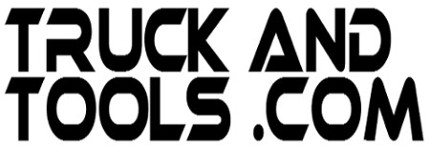By Murray Wennerlund published 8-8-2024 updated 12-9-2024
|
|
|

By Murray Wennerlund published 8-29-2020 updated 8-30-2020

By Murray Wennerlund published 8-29-2020 updated 8-30-2020
The U.S. Commerce Secretary Wilbur Ross set the US vs. Canada softwood production on an even keel at the time according to the NAFTA council. It was on April 24, 2017 that the US added a 20% import tariff on all Canadian soft wood products.
In April of 2020 we noticed the cost of softwood from domestic suppliers increased by 80% and in some areas as much as 110% increase in the costs of building lumber was reported.
For the most part, developers and investors can and will increase the costs of the homes to maintain their profit margins. Who actually is punished by the sudden increase is the thousands of disaster victims rebuilding or repairing after a storm event or other man made or natural disasters.
Background: Enter into our lives the Secretary of Commerce Mr. Wilbur L. Ross, Jr. who was sworn in by Vice President Mike Pence as the 39th Secretary of Commerce on February 28, 2017. Mr. Wilbur Ross works in the Trump Administration and is responsible to entrepreneurs and businesses in the US to make sure we are competitive on a national and global stage. Mr. Ross helps provide economic growth and development that creates jobs and economic opportunity, industry and community stability.
Since April 24, 2017, U.S. Commerce Secretary Wilbur Ross imposed import tariffs between the Canadian softwood production industry and the US softwood production industry. The tariffs were set at 20% and before 2020 and the COVID-19 pandemic made little noticeable changes to the costs to disaster victims rebuilding after a disaster.
Today it's a different story with homeowners and business owners reporting 80% to 110% increase costs of softwood since June 2020.
For thousands of disaster victims this additional cost of recovery will make it impossible to make a successful recovery. With insurances and federal resources offering an "All of Nothing" financial assistance program homeowners and businesses unable to cover the increased cost of recovery will not be offered any recovery funds. Agencies such as HUD and the SBA will restrict financial assistance or rescind offers made in the past if the homeowners and business owners can not come up with the required capital to bridge the softwood increased costs due to production impacted by the COVID-19 Pandemic.
Several hundred homeowners are reaching out to their congressional representatives to ask that the US Department of Commerce and Commerce Secretary Ross adjust tariffs to stabilize our increased demand for softwood resources or offset the costs of production for US based softwood production.
Increasing material costs to a flood victim of 2016 or a hurricane victim in 2020 without adjusting insurance, grants, and other disaster assistance will simple make the costs of recovery greater than the average American household and business to manage. Currently on average a disaster victim loses 30% of their pre-disaster worth if fully covered by private insurance, loans or public grants.
Please reach out to your congressional representatives and ask them to lift the import tariffs on our softwood demands so we can stabilize our recovery programs.
Softwood Lumber Agreement US and Canada.
On April 24, 2017, U.S. Commerce Secretary Wilbur Ross said his agency will impose new anti-subsidy tariffs averaging 20 percent on Canadian softwood lumber imports, a move that escalates a long-running trade dispute between the two countries. A Commerce Department fact sheet on the pending announcement seen by Reuters shows that West Fraser Mills will pay the highest duties at 24.12 percent, followed by Canfor Corp at 20.26 percent. Resolute FP Canada Ltd will pay a 12.82 percent duty, while Tolko Marketing and Sales and Tolko Industries will pay a 19.50 percent duty and J. D. Irving Ltd, will pay 3.02 percent. All other Canadian producers face a 19.88 percent duty, according to the document.
On April 25, 2017, the Trump administration announced plans to impose duties of up to 24% on most Canadian lumber, charging that lumber companies are subsidized by the government.[35] The duties are on the five firms: West Fraser Mills, Tolko Marketing and Sales, J. D. Irving, Canfor Corporation, and Resolute FP Canada. West Fraser Mills will pay the highest duty of 24%.[36]